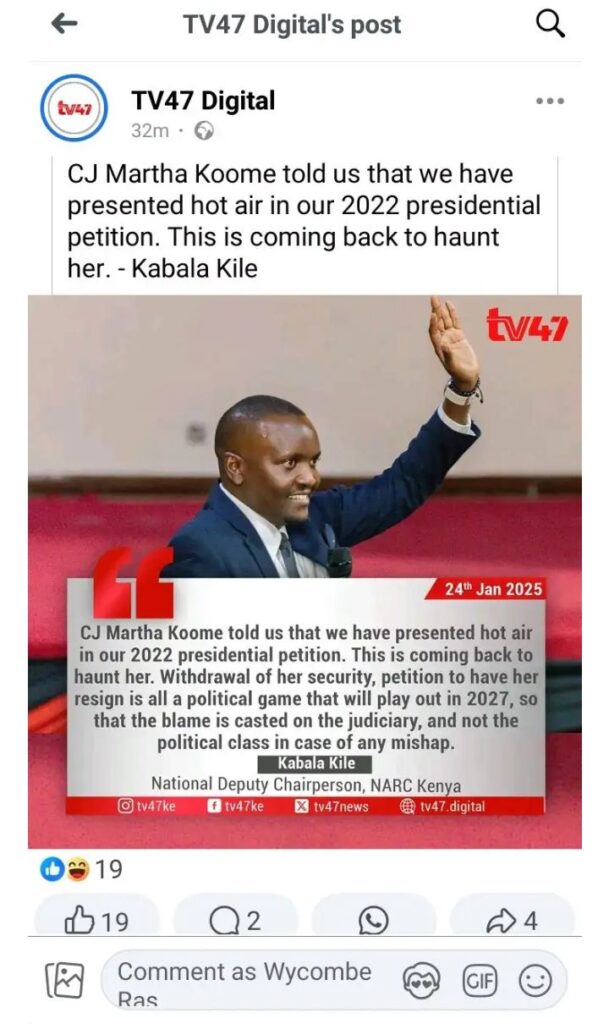NARC Kenya Deputy Chairperson Kabala Kile has raised concerns over recent developments involving Chief Justice Martha Koome, accusing political figures of trying to weaken the judiciary.
Kile pointed out that the Chief Justice’s past remarks during the 2022 presidential petition are now being used against her, calling it a political ploy.
Speaking on February 9, 2025, Kile referenced Koome’s dismissal of evidence in the 2022 presidential petition as “hot air,” saying that this statement is now being weaponized to undermine her leadership.
He linked this to recent moves, including the withdrawal of Koome’s security and calls for her resignation, arguing that these are deliberate efforts to manipulate public perception.
He claimed that these actions are part of a broader political strategy ahead of the 2027 elections, designed to make the judiciary the scapegoat for any future disputes.
Kile warned that undermining the judiciary in this manner is dangerous for democracy. He stated that the judiciary must be protected from political interference to ensure it remains independent, especially as the country approaches another election cycle.

He argued that weakening judicial institutions will only serve political interests at the expense of justice and democracy.
According to him, the current political moves are meant to shift blame from politicians to the courts in case of any future election-related conflicts.
The withdrawal of Koome’s security has fueled a heated debate, with legal experts and political analysts questioning the motivation behind it.
Some see it as an attempt to intimidate the judiciary, while others believe it is a sign of deeper political struggles.
Kile insisted that the judiciary should be allowed to operate independently without pressure from politicians. He cautioned that any attempts to interfere with judicial officers would only erode public confidence in the legal system.
Concerns over judicial independence in Kenya have been growing, especially with increasing political attacks on judges and court rulings that do not favor those in power.
Critics argue that if such interference continues, Kenya risks sliding into a situation where the courts are controlled by political forces rather than the law.
Many have warned that targeting the Chief Justice and other judicial officers could weaken the rule of law and set a dangerous precedent.
Kile’s remarks come at a time when the country is already dealing with political uncertainty and rising tensions ahead of the 2027 elections. His warning highlights the fragile balance between the judiciary and the political class.
Even as debates over judicial independence continue, many Kenyans will be watching closely to see whether the judiciary will remain strong or bow to political pressure.
